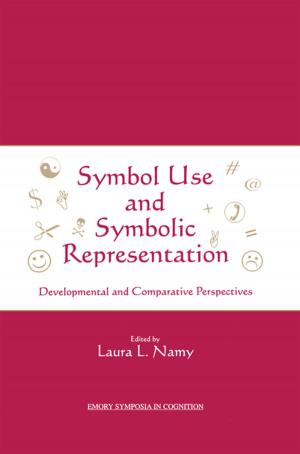The Authoritarian Public Sphere
Legitimation and Autocratic Power in North Korea, Burma, and China
Nonfiction, Social & Cultural Studies, Political Science, Politics, Practical Politics, Social Science, Cultural Studies, Ethnic Studies| Author: | Alexander Dukalskis | ISBN: | 9781315455518 |
| Publisher: | Taylor and Francis | Publication: | January 20, 2017 |
| Imprint: | Routledge | Language: | English |
| Author: | Alexander Dukalskis |
| ISBN: | 9781315455518 |
| Publisher: | Taylor and Francis |
| Publication: | January 20, 2017 |
| Imprint: | Routledge |
| Language: | English |
Authoritarian regimes craft and disseminate reasons, stories, and explanations for why they are entitled to rule. To shield those legitimating messages from criticism, authoritarian regimes also censor information that they find threatening. While committed opponents of the regime may be violently repressed, this book is about how the authoritarian state keeps the majority of its people quiescent by manipulating the ways in which they talk and think about political processes, the authorities, and political alternatives.
Using North Korea, Burma (Myanmar) and China as case studies, this book explains how the authoritarian public sphere shapes political discourse in each context. It also examines three domains of potential subversion of legitimating messages: the shadow markets of North Korea, networks of independent journalists in Burma, and the online sphere in China. In addition to making a theoretical contribution to the study of authoritarianism, the book draws upon unique empirical data from fieldwork conducted in the region, including interviews with North Korean defectors in South Korea, Burmese exiles in Thailand, and Burmese in Myanmar who stayed in the country during the military government. When analyzed alongside state-produced media, speeches, and legislation, the material provides a rich understanding of how autocratic legitimation influences everyday discussions about politics in the authoritarian public sphere.
Explaining how autocracies manipulate the ways in which their citizens talk and think about politics, this book will be of interest to students and scholars of Asian politics, comparative politics and authoritarian regimes.
Authoritarian regimes craft and disseminate reasons, stories, and explanations for why they are entitled to rule. To shield those legitimating messages from criticism, authoritarian regimes also censor information that they find threatening. While committed opponents of the regime may be violently repressed, this book is about how the authoritarian state keeps the majority of its people quiescent by manipulating the ways in which they talk and think about political processes, the authorities, and political alternatives.
Using North Korea, Burma (Myanmar) and China as case studies, this book explains how the authoritarian public sphere shapes political discourse in each context. It also examines three domains of potential subversion of legitimating messages: the shadow markets of North Korea, networks of independent journalists in Burma, and the online sphere in China. In addition to making a theoretical contribution to the study of authoritarianism, the book draws upon unique empirical data from fieldwork conducted in the region, including interviews with North Korean defectors in South Korea, Burmese exiles in Thailand, and Burmese in Myanmar who stayed in the country during the military government. When analyzed alongside state-produced media, speeches, and legislation, the material provides a rich understanding of how autocratic legitimation influences everyday discussions about politics in the authoritarian public sphere.
Explaining how autocracies manipulate the ways in which their citizens talk and think about politics, this book will be of interest to students and scholars of Asian politics, comparative politics and authoritarian regimes.















